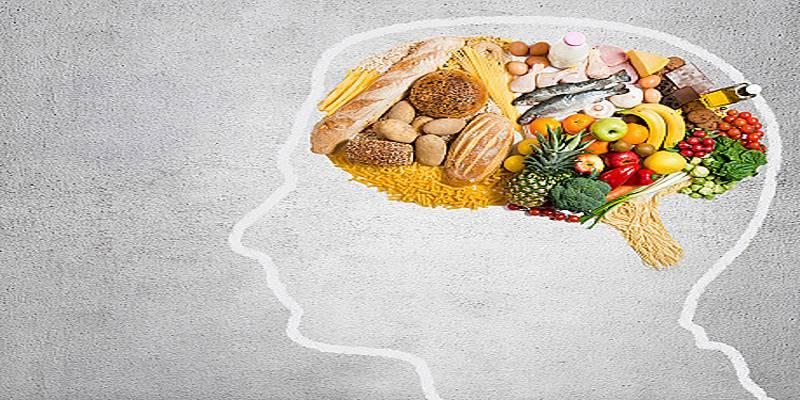Optimising health is a deliberate, research-driven process that focuses on enhancing physical, mental, and emotional wellbeing through proven strategies. It is not built on trends or unverified claims but on reliable scientific evidence that demonstrates measurable benefits. For those aiming to optimise their health, the most effective approach combines consistency, balance, and adaptability.
The following 10 evidence-based methods have been consistently shown to improve health outcomes, support longevity, and enhance quality of life. Each strategy is grounded in research and designed to work together, creating a comprehensive framework for long-term wellness.
Chronic stress disrupts hormonal balance, weakens immune function, and accelerates the ageing process. Evidence-based stress management techniques such as mindfulness practices, deep breathing exercises, and time in natural environments have been shown to reduce cortisol levels and improve emotional resilience.
Long-term emotional and physical health is improved by keeping a balanced workload, setting attainable goals, and doing regular activities that help you relax. People who know how to deal with worry well keep their bodies stable and their hearts working well.
Sleep is a foundation of optimal health, directly influencing recovery, hormonal regulation, memory, and mood stability. Studies indicate that adults require seven to nine hours of uninterrupted sleep each night for best results.
Consistent sleep schedules and environments designed to minimise disturbances can improve sleep quality. Adequate rest enhances the body’s ability to repair tissues, regulate appetite-controlling hormones, and maintain focus during waking hours. Chronic sleep deprivation, by contrast, is linked to increased risk of obesity, cardiovascular issues, and impaired immunity.
Balanced nutrition remains one of the most impactful factors in maintaining and improving health. Scientific evidence shows that diets rich in whole foods, including lean proteins, whole grains, healthy fats, fruits, and vegetables, support immune function, regulate metabolism, and lower the risk of chronic disease.
A focus on variety ensures that the body receives all essential macro and micronutrients. Minimising processed foods, refined sugars, and excessive saturated fats further supports cardiovascular health and reduces inflammation. Hydration is also a crucial aspect of nutritional balance, as water plays a role in nearly every cellular process.

Research consistently confirms that regular exercise contributes to longer life expectancy and improved quality of life. Engaging in both aerobic and resistance training strengthens the heart, builds muscle mass, and improves bone density.
The evidence suggests that at least 150 minutes of moderate-intensity aerobic activity per week, combined with two or more strength-focused sessions, can significantly reduce the risk of cardiovascular disease, type 2 diabetes, and mobility-related decline. Physical activity also benefits mental health by promoting the release of endorphins and improving cognitive function.
A healthy weight reduces the risk of multiple chronic diseases, including heart disease, stroke, and certain cancers. Evidence suggests that gradual and sustainable weight loss, achieved through balanced nutrition and physical activity, is more effective than extreme or restrictive dieting.
Body composition analysis offers a more accurate picture of health than weight alone, as muscle mass and fat distribution provide better indicators of metabolic health. Maintaining a healthy weight supports mobility, joint health, and long-term vitality.
Scientific research is clear on the health risks associated with excessive drinking, and recreational medicine use. Eliminating or significantly reducing exposure to these substances improves cardiovascular health, supports liver function, and enhances respiratory capacity.
Long-term avoidance also reduces the risk of several types of cancer, improves skin health, and contributes to increased energy levels. For those aiming to optimise their health, removing harmful substances is an essential preventive step.
Social wellbeing plays an important role in health. Studies show that strong social relationships are linked to lower rates of depression, better immune function, and improved longevity. Supportive relationships provide emotional stability, reduce stress, and encourage healthier behaviours.
Regular interaction with friends, family, or community groups fosters a sense of belonging, which contributes to mental and emotional resilience. Social connection is, therefore, a key, evidence-backed factor in overall health optimisation. Making time for these connections is an investment in both mental and physical longevity.
Preventive health care focuses on identifying potential health concerns before they become serious. Regular screenings, vaccinations, and medical check-ups help detect early signs of illness and allow for timely intervention.
Evidence indicates that preventive care significantly reduces the long-term cost and impact of managing chronic diseases. Monitoring vital health markers such as blood pressure, cholesterol, and blood sugar provides insight into overall health status and guides adjustments to lifestyle habits. Consistent preventive care helps ensure that small issues never become major health setbacks.

Cognitive health is closely tied to physical and emotional wellbeing. Research supports the value of mentally stimulating activities such as problem-solving, reading, and skill development in preserving brain function.
Regular mental engagement, combined with physical activity and good nutrition, reduces the likelihood of age-related cognitive decline. A healthy brain enhances decision-making, creativity, and adaptability, all of which contribute to better life quality.
The environment directly impacts physical and mental health. Evidence shows that exposure to pollutants, poor air quality, and harmful chemicals can contribute to respiratory issues, allergies, and other health concerns.
Maintaining a clean indoor environment, ensuring good ventilation, and limiting exposure to toxins through safer household products support long-term wellness. Access to natural light and green spaces also positively influences mood and overall vitality.
Optimising health is a continuous process, built on consistent application of reliable, science-backed strategies. Balanced nutrition, regular exercise, restorative sleep, effective stress management, and maintaining a healthy weight form the foundation. Avoiding harmful substances, fostering social connections, engaging in preventive care, protecting cognitive health, and ensuring a safe living environment complete the framework.
When these evidence-based methods are integrated into daily life and personalised to meet individual needs, they create a sustainable path toward improved wellness, greater resilience, and long-term vitality.

Discover how hostels make budget travel affordable, social, and unforgettable.

Discover smart and easy ways to explore your dream destinations on a budget.

Explore top travel destinations blending culture, nature, and sustainability.

Balanced nutrition supports brain health and mood. Discover how diet affects emotional well-being and mental resilience.

Laser eye surgery guide detailing types, risks, recovery process, candidacy factors, and costs for improved vision.

Discover 10 science-backed strategies to optimise health, enhance wellness, and maintain long-term vitality naturally.

A 40-year study reveals that weight loss surgery lowers early death risk, offering long-term health and survival benefits.

Busy parents can enjoy the holidays with quick, healthy meals that save time, reduce stress, and support family wellness.

Learn the types, causes, and treatments for headaches, and discover when it’s time to consult a healthcare professional.

Is it safe to travel to Sicily after Mount Etna’s eruption? Here’s the latest safety advice, alerts, and travel tips for visitors

Bangkok, Lima, Lyon, Wellington, Osaka, and Lucknow are the top food capitals of the world that serve you the best local flavors

Get updated travel safety tips and real-time alerts for Bali tourists following the recent volcano eruption and ash disruptions